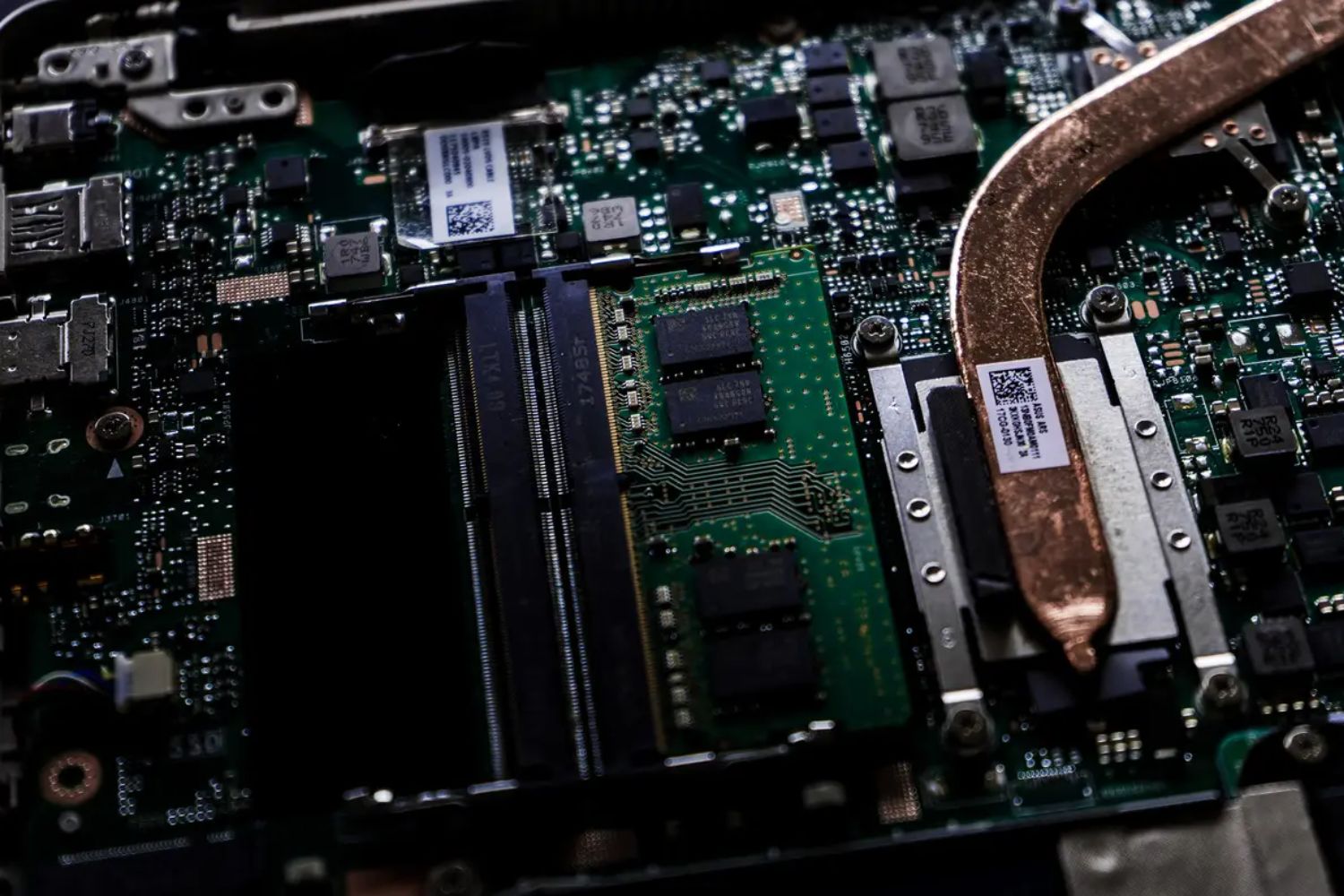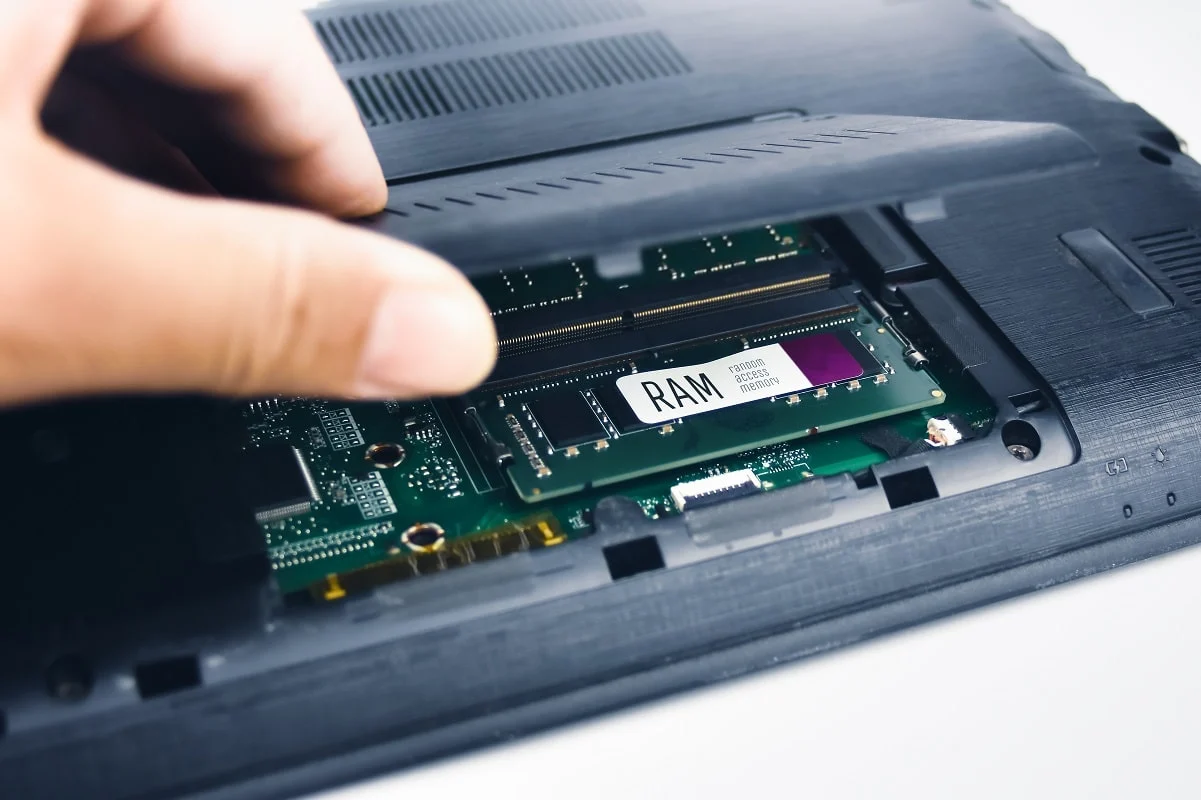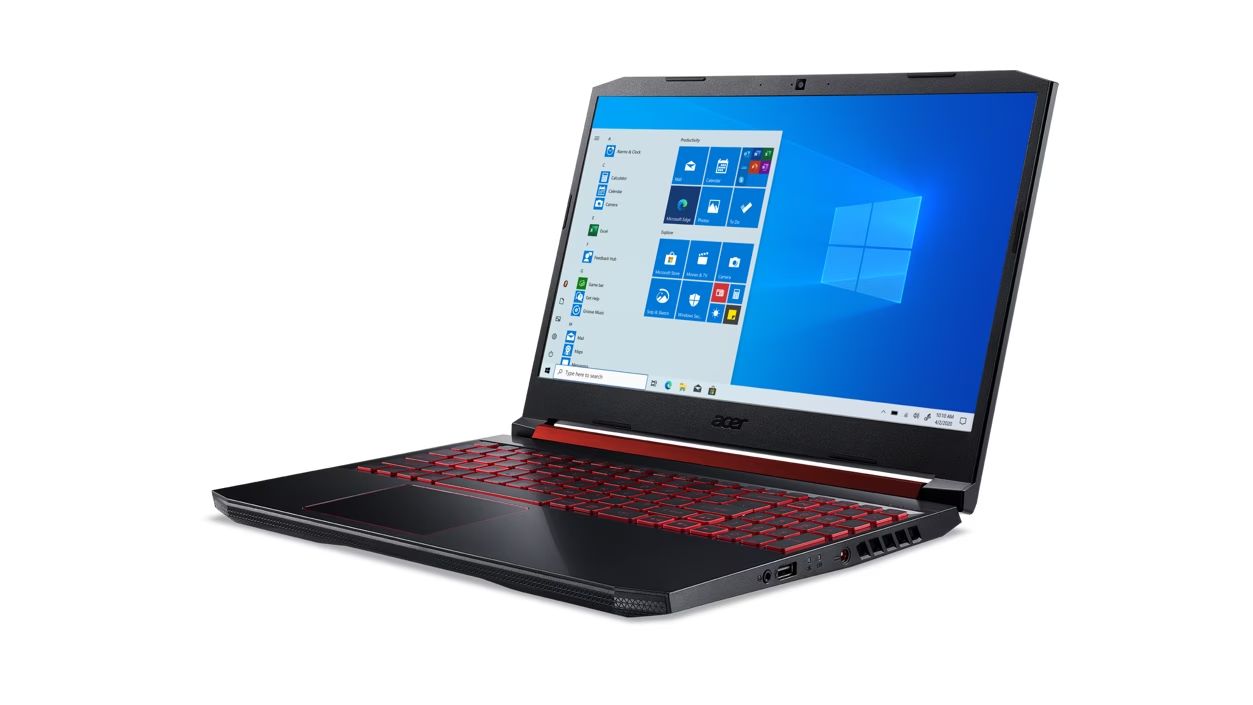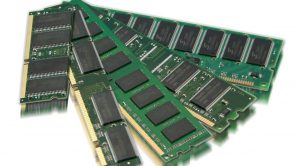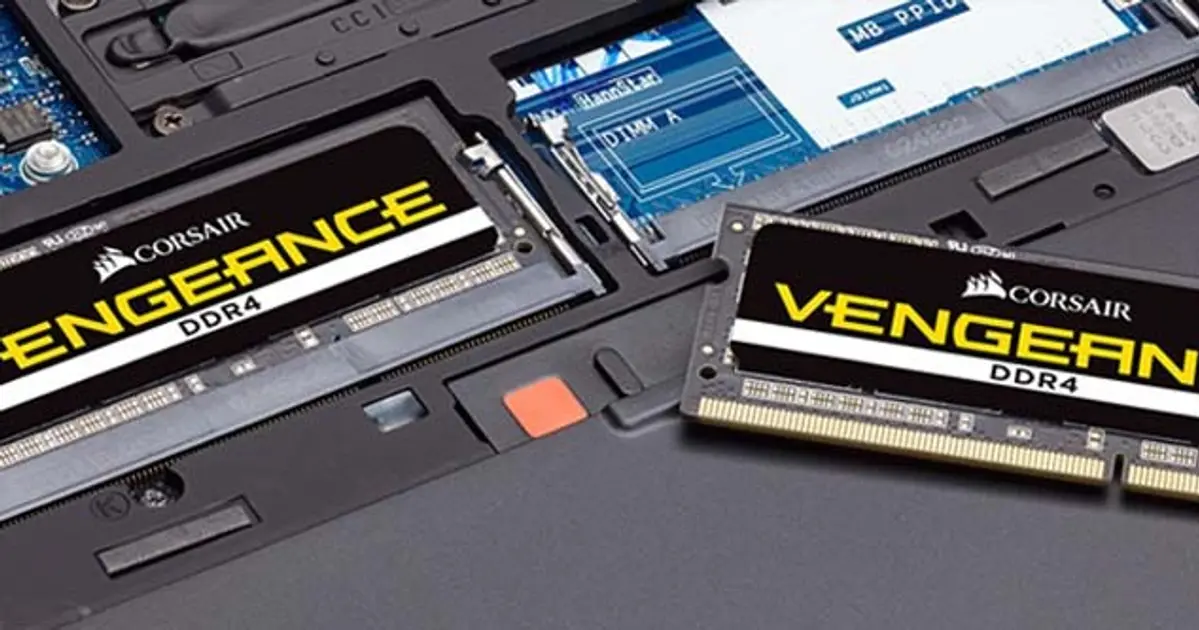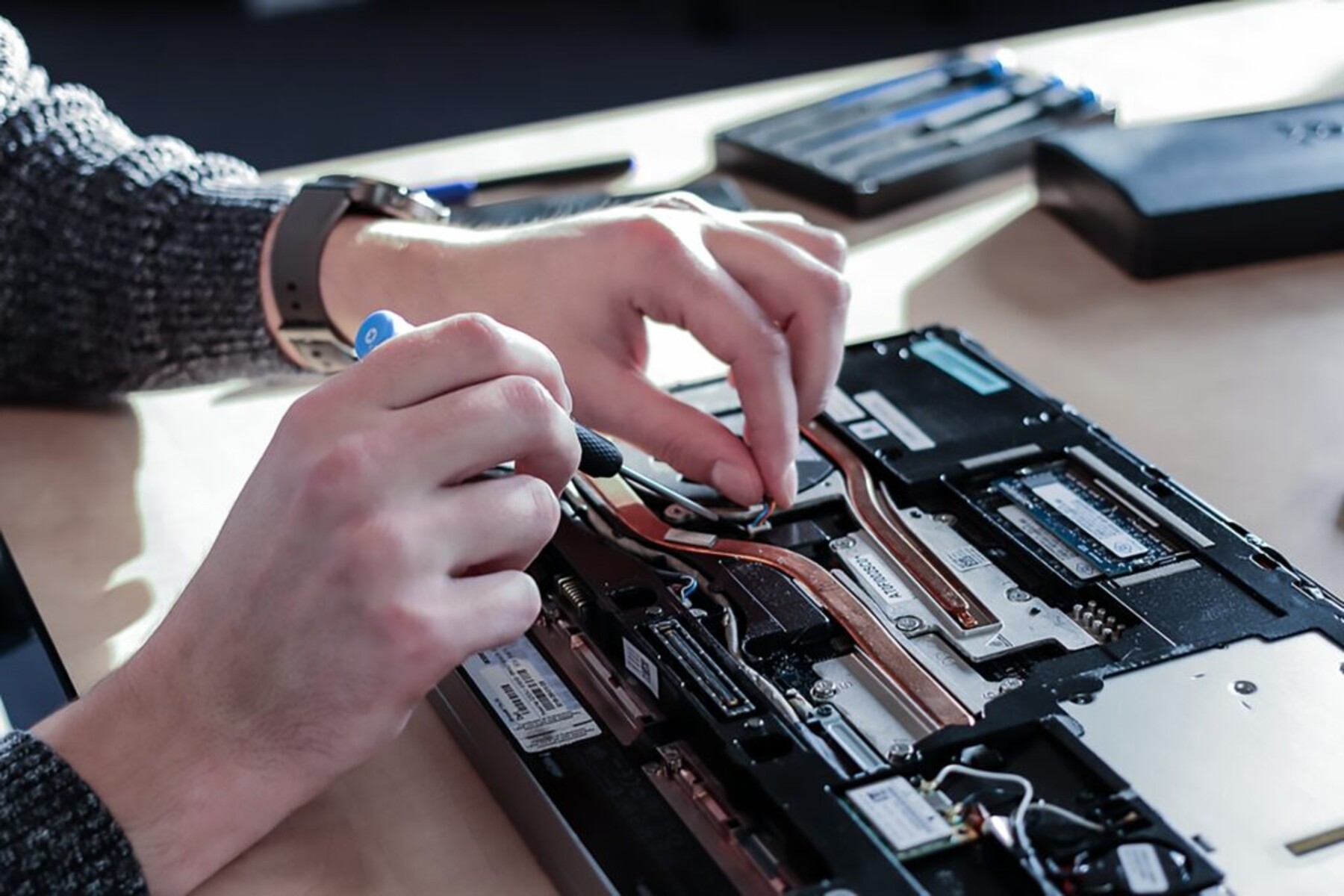##
Introduction
When it comes to gaming laptops, one of the key factors that determines their performance is the amount of RAM they have. RAM, or Random Access Memory, plays a crucial role in storing and accessing data required by the CPU for faster processing. In essence, it acts as a temporary storage space where data is stored for quick retrieval, allowing a smooth and seamless gaming experience.
Understanding how much RAM is ideal for a gaming laptop can be a bit challenging, especially with the continuous advancements in gaming technology. Having too little RAM can result in sluggish performance and frequent lag, while having too much may not provide significant benefits and can be an unnecessary expense.
In this article, we will delve into the topic of how much RAM a gaming laptop should have, exploring both the minimum requirements and the recommended specifications. We will also discuss various factors to consider when selecting the amount of RAM, including the types of games you play and optimizing RAM usage.
Before we dive deeper, it’s crucial to note that RAM is just one component that contributes to a gaming laptop’s overall performance. The graphics card, processor, and storage are equally important and should be considered when aiming to achieve optimal gaming experience. However, the focus of this article will solely be on RAM.
So, if you’re ready to unlock the potential of your gaming laptop and optimize its performance, let’s continue and explore the world of RAM requirements for gaming!
##
Understanding RAM
Before we delve into how much RAM a gaming laptop should have, let’s first gain a clear understanding of what RAM is and how it functions.
RAM, or Random Access Memory, is a type of computer memory that enables the CPU to quickly access and retrieve data. Unlike the long-term storage provided by hard drives or solid-state drives (SSDs), RAM provides temporary storage that is used for active tasks and processes. It acts as a bridge between the CPU and the storage devices, allowing for faster data access and manipulation.
Think of RAM as a workspace for the CPU. When you launch a game or any other application, the necessary data is loaded into the RAM so that the CPU can access and manipulate it quickly. The more RAM your system has, the more data it can store and access without relying on slower storage devices, resulting in improved performance and smoother gameplay.
RAM is a volatile form of memory, meaning that it requires a constant supply of power to retain data. When you shut down your computer or restart it, the contents of RAM are cleared, and the memory is ready to be used again.
It’s important to note that RAM is different from storage devices like hard drives or SSDs. While those devices provide long-term storage for files and applications, RAM offers short-term storage for the active data that the CPU needs to process quickly.
Now that we have a basic understanding of what RAM is and its role in a computer system, let’s move on to determining the amount of RAM required for a gaming laptop.
##
Minimum RAM Requirements
When it comes to minimum RAM requirements for gaming laptops, it is important to consider the specific requirements set by game developers. These requirements can vary depending on the complexity of the game, the graphics engine used, and the overall system requirements.
In general, most modern games have minimum RAM requirements of at least 8GB. This is considered the baseline for gaming laptops, as it provides enough memory for the game to run smoothly without major performance issues.
With 8GB of RAM, you will be able to run most games on the market today at lower or medium graphics settings. However, it is worth noting that some newer or more demanding games may require more RAM for optimal performance.
While 8GB may be the minimum requirement, it is advisable to consider going beyond this threshold if you want to future-proof your gaming laptop. As games continue to advance, their system requirements are likely to increase as well. Having more RAM can help ensure that your system can handle upcoming games without any issues.
Additionally, it is important to consider that the operating system and other background processes also require a portion of the available RAM. If you have limited RAM, these background processes can impact gaming performance, causing stutters or lag. By having more RAM, you allocate a larger portion for running games while leaving enough headroom for other processes.
In summary, while the minimum RAM requirement for gaming laptops is 8GB, it is advisable to consider higher capacities to accommodate future game releases and ensure smoother gaming performance.
##
Recommended RAM for Gaming
While the minimum RAM requirement for gaming laptops is 8GB, many gaming enthusiasts and professionals recommend opting for higher capacities to fully immerse yourself in the gaming experience and future-proof your system.
For most gamers, a recommended RAM capacity of 16GB provides an excellent balance between performance and affordability. With 16GB of RAM, you have more than enough memory to handle modern games and multitasking without encountering any significant performance bottlenecks.
Having 16GB of RAM allows for smoother gameplay, faster loading times, and improved overall system responsiveness. It also provides headroom for running resource-intensive applications in the background, such as streaming software or video editing tools, without impacting gaming performance.
If you are a hardcore gamer or engage in content creation tasks, such as 3D rendering or video editing, you might consider upgrading to 32GB or even 64GB of RAM. These higher capacities are especially beneficial for handling memory-intensive tasks and can significantly improve performance when running multiple demanding applications simultaneously.
However, it is crucial to note that higher RAM capacities may not always translate to a noticeable performance boost in gaming. While having ample RAM can help with multitasking and running memory-intensive applications, excessive amounts may not significantly impact gaming performance unless the game itself requires it.
Ultimately, the recommended RAM capacity for gaming depends on your specific needs, budget, and the types of games you play. It is always advisable to refer to the system requirements of the games you intend to play and consider future advancements in gaming technology when making your decision.
Remember, RAM is just one component that affects gaming performance. It is essential to have a well-rounded system with a capable processor, graphics card, and storage device for optimal gaming experience.
##
Factors to Consider When Selecting the Amount of RAM
Choosing the right amount of RAM for your gaming laptop involves considering several factors that can affect your gaming experience. Let’s explore some key factors to keep in mind when selecting the amount of RAM:
- Game Requirements: Different games have varying RAM requirements. It’s crucial to check the system requirements of the games you plan to play. Some games may require a minimum of 8GB, while others may recommend or require higher capacities for optimal performance.
- Multi-tasking: If you tend to have multiple applications or processes running simultaneously while gaming, it is advisable to have more RAM. This ensures that there is adequate memory for both the game and any additional applications, minimizing performance impacts caused by limited memory.
- Future-proofing: Consider how long you plan to use your gaming laptop. If you intend to keep it for several years, it’s wise to choose higher RAM capacities to accommodate future advancements in games and software. This helps ensure that your system can handle upcoming releases without the need for immediate upgrades.
- Upgradability: Check whether your gaming laptop allows for RAM upgrades in the future. Some laptops have soldered RAM modules that cannot be upgraded, while others provide accessible slots for easy RAM upgrades. If possible, opt for a laptop that offers upgradeability, allowing you to increase the RAM capacity if needed.
- Budget: RAM prices can vary depending on the capacity and speed. Consider your budget and determine the sweet spot that provides the best value for your money. Remember that while more RAM is beneficial, excessive capacities may not provide significant performance improvements for gaming alone.
- Other System Specs: Take into account the other hardware components of your gaming laptop. A powerful processor and graphics card, along with an SSD for faster data access, can alleviate some of the burden on RAM and contribute to overall gaming performance. Ensure that your RAM choice aligns with your system’s capabilities for optimal synergy.
By considering these factors, you can make an informed decision when selecting the amount of RAM for your gaming laptop. It’s important to strike a balance between your budget, game requirements, multitasking needs, and future-proofing to maximize your gaming experience without overspending on unnecessary capacity.
##
Different Types of Games and RAM Requirements
When it comes to gaming, different types of games have varying RAM requirements due to differences in their complexity, graphics demands, and overall system requirements. Let’s explore the different types of games and their RAM requirements:
- Casual and Indie Games: Casual and indie games, which are often less graphically demanding, typically have lower RAM requirements. Most casual games can run smoothly on systems with 4GB to 8GB of RAM. However, it’s always recommended to check the system requirements of individual games to ensure optimal performance.
- AAA and Open World Games: AAA games, which are often graphics-intensive and feature vast open worlds, tend to have higher RAM requirements. These games typically recommend or require a minimum of 8GB to 16GB of RAM for smooth gameplay. Open world games with sprawling environments and numerous characters and assets, such as Skyrim or Grand Theft Auto V, often benefit from higher RAM capacities to prevent performance issues like stuttering and loading delays.
- Multiplayer and Online Games: Multiplayer and online games, such as massively multiplayer online role-playing games (MMORPGs) or first-person shooters (FPS), often require additional RAM to handle the increased network activity and player interactions. Depending on the game’s scale and complexity, 8GB to 16GB of RAM is usually recommended to ensure seamless gameplay and reduce lag caused by network synchronization.
- Simulation and Strategy Games: Simulation and strategy games, which often involve complex simulations and AI calculations, can benefit from higher RAM capacities. Games like Cities: Skylines or Civilization VI require ample RAM to handle the extensive calculations and avoid performance issues. 16GB to 32GB of RAM is often recommended for a smooth gaming experience in these genres.
- Virtual Reality (VR) Games: Virtual reality games require additional resources to render the immersive virtual environments in real-time. As a result, VR games often have higher RAM requirements. Most VR games recommend a minimum of 8GB to 16GB of RAM, although higher capacities may be necessary for more demanding titles or for running other applications simultaneously, such as VR streaming or recording software.
It’s important to note that these RAM requirements are general guidelines, and specific games may have their own recommended or minimum RAM specifications. Always refer to the system requirements provided by the game developers for accurate information on RAM requirements.
By considering the types of games you play and their associated RAM requirements, you can ensure that your gaming laptop is equipped with enough memory to handle your favorite games smoothly and without performance issues.
##
RAM vs Other Hardware Components
While RAM is an essential component for gaming laptops, it’s important to understand how it compares to other hardware components and its impact on overall gaming performance. Let’s explore how RAM stacks up against other key components:
- Processor (CPU): The CPU is responsible for executing instructions and calculations in games and other applications. While the CPU is crucial for overall system performance, RAM works in conjunction with it by providing fast access to data for processing. In gaming, a powerful CPU combined with adequate RAM ensures smooth gameplay and efficient processing of game logic.
- Graphics Card (GPU): The GPU is responsible for rendering graphics in games, impacting the visual quality and frame rates. While the GPU primarily handles the graphical aspects, it still relies on RAM for storing and accessing textures, models, and other graphic assets. Sufficient RAM ensures that the GPU has enough memory to work with, resulting in seamless graphics rendering and improved overall visual experience.
- Storage (Hard Drive/SSD): Storage devices store the game files, operating system, and other data. RAM, on the other hand, provides temporary storage for active processes and tasks. While storage capacity affects the number of games you can store, it doesn’t directly impact gaming performance like RAM does. However, a fast SSD can significantly reduce game loading times and overall system responsiveness, complementing the benefits of having adequate RAM.
- Power Supply Unit (PSU): The PSU supplies power to all components of the gaming laptop. While it is vital for stable power delivery, it doesn’t directly impact RAM performance. However, a reliable and efficient PSU ensures that all components, including the RAM, receive sufficient power for optimal operation.
It’s important to note that all these components work together to provide a seamless gaming experience. While RAM is crucial for storing and accessing data quickly, a well-balanced system with a powerful CPU, GPU, and ample storage enhances the overall gaming performance.
When building a gaming laptop, it’s essential to consider a holistic approach and ensure that these components are in sync with each other. A balance between CPU, GPU, RAM, storage, and power supply is critical for achieving optimal gaming performance.
Ultimately, RAM plays a vital role in a gaming laptop’s performance, ensuring smooth multitasking, quick data access, and overall system responsiveness. However, it’s important to consider all components as part of the bigger picture to create a well-rounded gaming system.
##
Tips for Optimizing RAM Usage in Gaming Laptops
Optimizing RAM usage in your gaming laptop can help improve overall performance and ensure that you’re getting the most out of your system. Here are some tips to optimize RAM usage:
- Close Unnecessary Background Applications: Close any unnecessary applications running in the background, such as web browsers, chat clients, or music players. These consume valuable RAM and can impact gaming performance. Keeping only essential applications open frees up more memory for your game.
- Disable Startup Programs: Some applications automatically start when you boot up your laptop, consuming valuable resources, including RAM. Disable unnecessary startup programs to free up memory for gaming. You can do this through the Task Manager or using third-party startup management tools.
- Optimize In-Game Graphics Settings: Adjusting the in-game graphics settings can have a significant impact on RAM usage. Lowering graphical settings, such as texture quality or shadow resolution, reduces the amount of video memory (VRAM) required, thus potentially freeing up system RAM for other processes.
- Monitor Resource Usage with Task Manager: Use the Task Manager to monitor resource usage while gaming. This allows you to identify any memory-hungry applications or processes that may be causing performance issues. Close or modify these processes to optimize RAM usage.
- Upgrade to a Higher RAM Capacity: If you consistently find that your gaming laptop’s RAM is being fully utilized, consider upgrading to a higher capacity. Having more RAM allows for smoother multitasking and ensures that your system has enough memory for both the game and other processes running simultaneously.
- Ensure Proper System Maintenance: Regularly perform system maintenance tasks, such as disk cleanup, uninstalling unnecessary applications, and removing temporary files. These actions help free up disk space and reduce the strain on your system’s RAM.
- Install the Latest Drivers: Keep your graphics card and other hardware drivers up to date. Updated drivers often come with performance optimizations and enhancements, which can result in more efficient RAM usage and overall system performance.
By following these tips, you can optimize your gaming laptop’s RAM usage and ensure that you’re getting the most out of your system. Remember that RAM usage can vary depending on the specific game or application, so it’s essential to monitor resource usage and adjust accordingly.
Conclusion
When it comes to determining how much RAM a gaming laptop should have, it’s crucial to consider various factors such as game requirements, multitasking needs, and future-proofing. While the minimum RAM requirement for gaming is typically 8GB, most gamers find that opting for 16GB provides an excellent balance between performance and affordability.
However, it’s important to remember that RAM is just one component that affects gaming performance. A well-rounded gaming laptop should also have a powerful processor, graphics card, and fast storage device to complement the benefits of having adequate RAM.
Understanding the different types of games and their RAM requirements can also help in making an informed decision. Whether you play casual indie games, AAA titles, or VR games, each genre may have specific RAM requirements that contribute to optimal performance and a smooth gaming experience.
Optimizing RAM usage in your gaming laptop is essential to maximize its performance. By closing unnecessary background applications, disabling startup programs, adjusting in-game graphics settings, and monitoring resource usage, you can ensure efficient RAM utilization and prevent performance bottlenecks.
It’s worth noting that while RAM is important, excessive amounts may not always result in significant performance improvements for gaming alone. It’s crucial to strike a balance between your budget, game requirements, and other hardware components to create a well-rounded gaming system.
In conclusion, selecting the right amount of RAM for your gaming laptop is a critical decision that can impact your overall gaming experience. By considering game requirements, multitasking needs, and future-proofing, you can ensure that your gaming laptop is equipped with adequate RAM to handle current and upcoming game releases, providing you with a seamless and immersive gaming experience.









